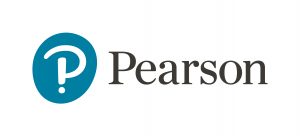The Project
The Progress in International Reading Literacy (PIRLS) assessment provides internationally comparative data about how well children from different countries read after four years of primary schooling. PIRLS also provides extensive information about home supports for literacy and school environments for teaching and learning.
Pearson Education, in collaboration with the Oxford University Centre for Educational Assessment, were chosen by the UK government’s Department for Education (DfE) to deliver the PIRLS 2016 assessment programme.
The team’s main responsibilities are to advise on the development of the assessment items and survey instruments, to carry out trials with 30 pupils in each of up to 30 primary schools, and to ultimately administer PIRLS 2016 data collection in up to 150 primary schools (30 pupils per school) during summer term 2016.
Research outputs include a report of the PIRLS 2016 findings to be disseminated throughout the education community.
Highlights
England has significantly improved its average reading performance compared to previous cycles and 2016 marks England’s highest average performance across all four PIRLS cycles.
England’s average performance is among the best in Europe and Year 5 pupils perform significantly above the International Median and.
The large performance gap between the highest and lowest achieving pupils in previous cycles has substantially reduced. This is because (I) England’s lowest performing pupils have substantially improved and because (II) boys significantly improved their average performance in 2016.
In 2011, England’s gender-gap was one of the largest across all participating countries, but in 2016, England’s gender-gap is now consistent with the International Median.
Download Research Report
Progress in International Reading Literacy Study (PIRLS): National Report for England
December 2017
Joshua McGrane, Jamie Stiff, Jo-Anne Baird, Jenny Lenkeit & Therese Hopfenbeck
PIRLS 2016 International Report
The PIRLS 2016 International Report with comparative findings across all participating countries can be found on IEA’s website here.
Background information
For more background information on what PIRLS is and aims for please click here
The PIRLS Encyclopaedia provides more detailed contextual information about England’s and other education systems.
Research Team







